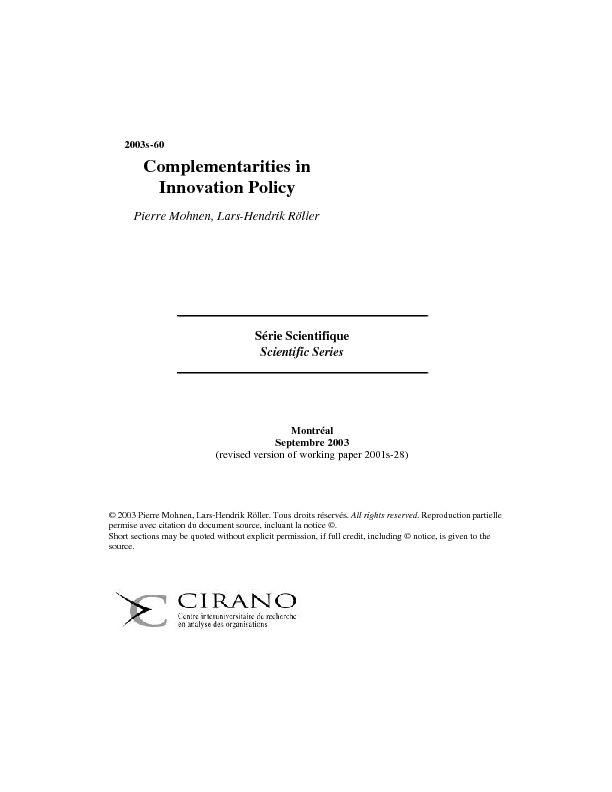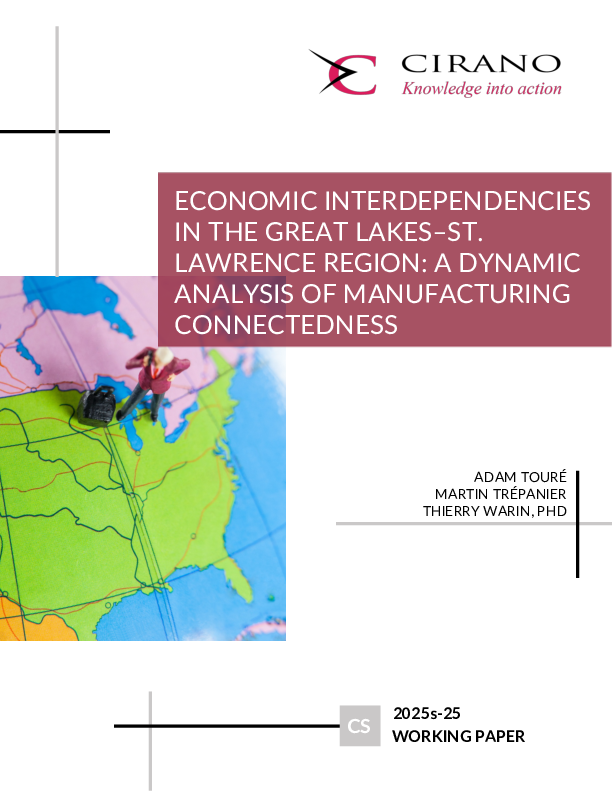Complementarities in Innovation Policy
This paper develops a framework for testing discrete complementarities in innovation policy using European data on obstacles to innovation. We propose a discrete test of supermodularity in innovation policy leading to a number of inequality constraints. We apply our test to two types of innovation decisions: to innovate or not, and if so, by how much. We find that the evidence regarding the existence of complementarity in innovation policies depends on the phase of innovation that is targeted (getting firms innovative or increasing their innovation intensity) as well as on the particular pair of policies that is being considered. The two phases of the innovation process, i.e. the probability of becoming an innovator and the intensity of innovation, are subject to different constraints. Interestingly, there seems to be a need to adopt a package of policies to make firms innovate, while a more targeted choice among policies is necessary to make them more innovative.
[ - ]




